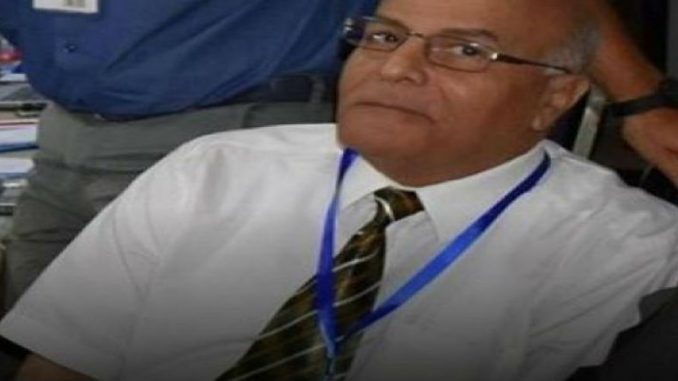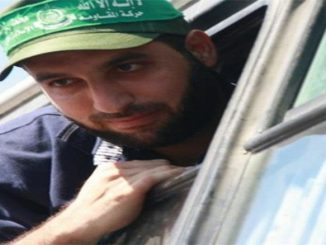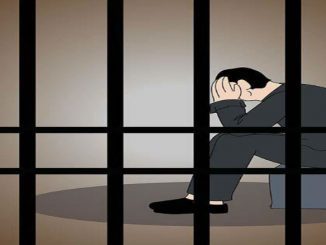
A cloud of mystery has been shadowing the death of Egyptian nuclear scientist Abu Bakr Abdel Moneim Ramadan who announced dead after attending an energy conference in Marrakech, Morocco.
Ramadan was head of the National Radiation Observatory Network at the Egyptian Nuclear and Radio-logical Regulatory Authority.
Egyptian Ambassador to Morocco Ashraf Ibrahim said Ramadan felt sick during the conference and went to his room.
Shortly after arriving to his room in a hotel in the tourist area of Agdal, Ramadan felt a severe health disorder and called room service to ask for medical assistance, however, he died upon arriving to a private clinic.
The public prosecutor in the Moroccan city of Marrakech ordered the autopsy of the body to know the real reasons leading to his death.
The Egyptian ambassador to Morocco explained that the embassy is following up with the Moroccan authorities since the death of Ramadan and will pursue procedures to return his body home.
Medical sources said that Ramadan felt stomach cramps before heading to the clinic where he died, and directed blood samples to a medical laboratory in Casablanca to see if the death was caused by poisoning.
The Egyptian expert had previously participated in official meetings with Arab environment ministers in 2014, and was tasked, along with other experts, in 2015, to study the potential effects of the nuclear reactors Bushehr in Iran and Dimona in Israel.
The autopsy said that Ramadan died of a heart stroke, however, many to many observers the probability that the Egyptian scientist has been assassinated by the Israeli Mossad is very strong.
In 2018, a new book written by Israeli investigative journalist Ronen Bergman titled ‘Rise and Kill First: The Secret History of Israel’s Targeted Assassinations’ was released. In the book, he referred to the Israeli assassination apparatus as “the most robust streamlined assassination machine in history”.
In fact, nuclear scientists, in particular, are a real threat to Israel. For a country that is currently in a state of ‘nuclear ambiguity’, that is, its possible possession of nuclear weapons has yet not been made clear, it would be dangerous to have an Arab neighbour with the same kind of weaponry.
In the late 1950’s, there was an incident of German scientists coming to Egypt to built missiles. General Isam Al Din Mohamed Khalil was appointed by President Nasser to coordinate the program.
Once the news reached Mossad, Israel’s national intelligence agency, there was “an atmosphere of near panic”, according to a Mossad internal report.
David Ben-Gurion, the former Prime Minister of Israel, called for urgent conferences at the highest plan to figure out a plan: to kidnap or eliminate the German scientists. Eventually, after numerous attempts, the Mossad managed to recruit agents inside the project to bring it to a halt.
Other attempts were directed at very bright Egyptian nuclear scientists, such as Dr. Yahya El Mashad. El Mashad, who headed the nuclear program in the late 70s, was found dead in his room at the Le Meridien hotel in Paris in 1980.
Another incident was directed at Sameera Moussa, who was involved in a car crash in the United States in 1952 after receiving permission to visit top-secret US atomic facilities and was getting ready to return back home. Sameera was working to promote peaceful uses of nuclear energy and to achieve nuclear disarmament around the world.
Dr Ali Moustafa Pasha, the Egyptian theoretical physicist and who Albert Einstein called a “genius”, was also found dead under ‘mysterious circumstances’ in 1950, which prompted press reports to speculate that the Mossad was behind it, yet there are no clear proofs yet.
In August this year, a Syrian rocket scientist named Aziz Asbar was also killed by a car bomb. A senior official from a Middle East intelligence agency told The New York Times that “it was at least the fourth assassination mission by Israel in three years against an enemy weapons engineer”.
The Scientific Studies and Research Center facility in Syria also faced an explosion in 2007, killing 15 Syrians and number of Iranians, yet Israel did not claim responsibility.
In these troubling times of war and destruction in the Middle East, it is always important to not forget that there are other wars – other than terrorism – that should also be fought against, and that is the development and protection of the future scientists in the region.



